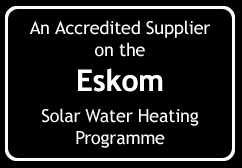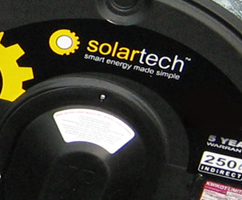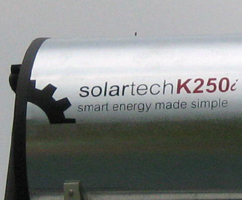

Cash-strapped power utility Eskom - October 10th, 2009 Cash-strapped power utility Eskom would publish its much-anticipated tariff application, covering the period from 2010 to 2013, next week, following recent leaks of its contents to the media, chairperson Bobby Godsell confirmed on Friday. The utility's CEO, Jacob Maroga, would host a media conference on Tuesday to outline the reasons behind what will no doubt be a highly controversial request for tariff increases of 45%-a-year for the three-year period ending on March 31, 2013. This so-called "smoothed" model was reportedly Eskom's preferred approach. But, it is understood that the group, which made a R9-billion-plus accounting loss in 2009, had also submitted a scenario for a 146% step-change increase for 2010/11, to be followed by more modest increases for 2011/12 and 2012/13. The 93-page application document was submitted to the National Energy Regulator of South Africa (Nersa), the National Treasury and the South African Local Government Association on September 30, and would be canvassed with Eskom's shareholder, the South African government, over the weekend. Speaking in Johannesburg at an event hosted by the Steel and Engineering Industries Federation of South Africa, Godsell said that there had to be a "systemic" change to South Africa's tariff architecture, and that tariffs would have to move "higher". "I do completely understand that when you are telling people that their electricity prices are going to double, you are unlikely to win the competition for the nicest guy in the county. "I do, however, think there is no alternative to what I would call a kind of 'systemic change' in the levels of tariff in South Africa, if we are to have electricity, and not go back to being the joke of having the cheapest electricity, but being out of stock," Godsell asserted. Any future cross-subsidies, he argued, should be weighted in favour of the poor and vulnerable, and should be transparent. However, there should also be a discussion as to whether "cheap power" should be used as an industrial policy instrument, as has been the case hitherto. "There will be a national debate about how rapidly we can move to realistic tariffs and whether it's one year, two years or three years, or longer. And, ultimately, Nersa will make the decision," Godsell added. Godsell also stressed that he would be more than happy to partner with private funders even in the current R385-billion build programme. On the generation front, a pumped-storage scheme and to coal-fired projects were under way. But, at least one of these, probably Kusile, in the Mpumalanga province, might have to be delayed, unless tariffs rise sharply, or new equity or loans were injected. Godsell cautioned, though, that prospective partners were unlikely to come forward until there was certainty that tariff levels would be sufficient to guarantee them a return. |


